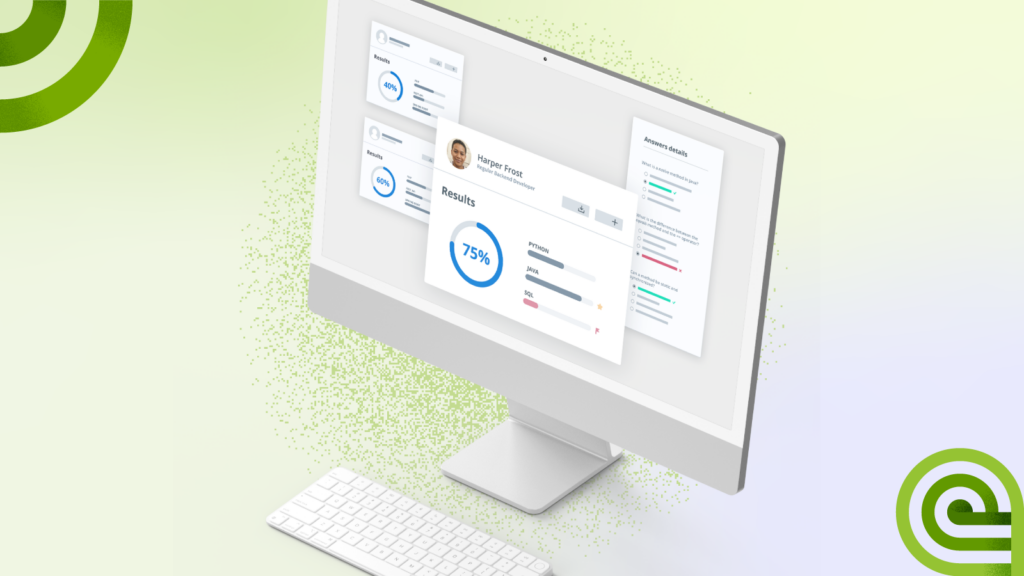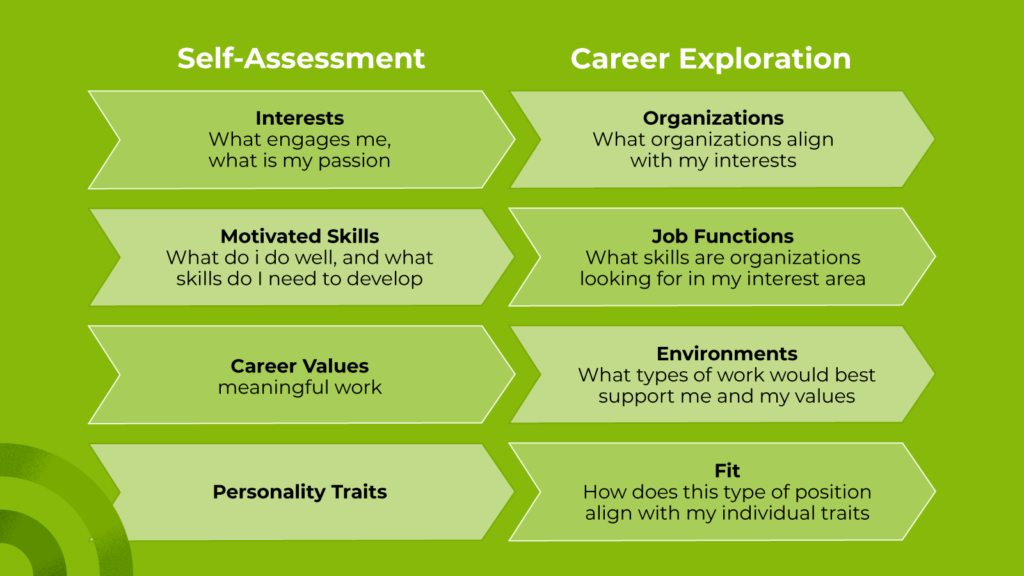Purpose and impact in evaluation of skills assessment tools

Have you ever taken a moment to reflect on the comprehensive and intricate mechanisms that organizations implement to evaluate talent, assess potential, and sift through extensive volumes of data?
How do these entities ensure that they make decisions that are not only informed but also predictive of future successes?
The answer lies in the captivating world of skill assessment. These methods, often overlooked, are the backbone of many strategic decisions.
They serve as the behind-the-scenes powerhouse, enabling establishments to function with unmatched accuracy, precision, and a forward-thinking vision.
By embracing skill assessment tool, organizations are equipped with tools that offer a deeper understanding of both current scenarios and potential future trajectories, ensuring they remain at the forefront of their respective industries.
Introduction to assessment tools
What are assessment tools?
In the realm of professional development and evaluation, the skill assessment software stands as a beacon of detailed scrutiny and precision.
These tools are not just mere instruments; they are the product of systematic methodologies and comprehensive research.
Specifically engineered to delve deep, they measure, analyze, and interpret a myriad of components across diverse sectors, from education to business and beyond.
One can think of these assessment tools as the advanced, high-resolution lenses of the professional world, offering unparalleled clarity and insight.
Much like how a telescope bridges the vast distance between us and distant celestial bodies, bringing them within our view, a skill assessment tool shines a light on even the most minute details and subtle intricacies.
Its design ensures that every crucial element, no matter how seemingly insignificant, is brought to the forefront, allowing for a thorough and holistic understanding.

Importance in various sectors
From the bustling start-ups in urban hubs to the expansive headquarters of multinational conglomerates, assessment tools are an integral part of the business fabric.
Within the commercial domain, these instruments are more than just tools—they’re the very pulse, capturing the rhythm and flow of business operations.
They offer a deep dive into employee performance, acting as mirrors that reflect not just numbers, but narratives, charting out each individual’s journey, achievements, and potential areas for growth.
Beyond individual evaluations, these tools play a pivotal role in shaping organizational strategies. They dissect market trends, consumer behaviors, and operational efficiencies, providing a granular view that aids in informed decision-making.
Their utility extends to every corner of a business, from human resources to finance, from marketing to product development.
Their omnipresence in boardrooms, strategy sessions, and review meetings highlights their unmatched value in driving business growth, innovation, and sustainability.
In the dynamic world of commerce, where precision and foresight are paramount, skills assessment tools stand tall as silent architects, molding the future trajectory of businesses globally.
Purpose of assessment tools
Identifying strengths and weaknesses
You might be familiar with the ancient adage, “Know thyself.” In the realm of businesses and personal development, skill assessment tools act as the embodiment of this wisdom.
For organizations, these instruments delve deep, charting out strengths and spotlighting areas that could benefit from a bit more attention or refinement.
For individuals, it’s akin to having a dedicated mentor by your side, offering insights into your capabilities and gently nudging you towards areas of growth.
Imagine a seasoned coach, armed with data and insights, providing tailored feedback to help you or your organization reach its full potential. That’s the magic and promise of skill assessment tools in the modern era.
Guiding decision-making
Decision makers often grapple with pressing questions such as, “Is now the right moment to launch this product?” or “Is our chosen approach the most effective?”
Amidst the myriad of choices and potential pitfalls, skills assessment tools emerge as invaluable compasses, guiding the way forward.
These tools go beyond merely supplying raw figures or cursory evaluations. Instead, they paint a detailed portrait of the situation, synthesizing a plethora of metrics into a cohesive narrative.
By drawing upon the intricate patterns and relationships present in the data, skill assessment tests offer organizations a lens to perceive the bigger picture.

This newfound clarity allows businesses to approach critical junctures with renewed confidence and precision, ensuring that each decision not only resonates with their primary goals but also adapts to the dynamic nuances of the market.
Furthermore, the depth and breadth of insights provided by these assessment tools effectively dispel the fog of uncertainty.
They carve a path of enlightenment, transforming ambiguities into clear, actionable steps.
In doing so, skills assessment tools empower enterprises to venture forth, making strategic decisions with both knowledge and courage, firmly rooted in the foundation of informed analysis.
Enhancing skill development
Recall the thrill of diving into a video game, immersing yourself in its challenges, and then, at a pause or level’s end, being presented with your performance metrics?
That display of scores, achievements, and areas for improvement is a prime example of skills assessment tools in action!
It’s more than just numbers; it’s a mirror reflecting your gaming strengths and areas where you might need a strategy tweak or some extra practice.
Such tools, whether in games or real-life scenarios, guide our growth journey. They highlight where we shine and where there’s room for enhancement, ensuring that our efforts are always directed towards meaningful improvement.
In essence, they’re like personalized roadmaps, helping us navigate the path to mastery.
Impact of assessment tools in evaluation
Efficient and effective analysis
The importance of harnessing and interpreting vast amounts of data cannot be overstated. When armed with the top skill assessment tools tailored to evaluate technical skills, navigating through colossal datasets becomes not just feasible, but a finely-tuned operation.
Visualize this process as a meticulous expedition across an expansive desert. Here, each speck of sand symbolizes a data point.
As you traverse this landscape with skills assessment tools designed for technical skills evaluation, you’re ensured that even the tiniest, yet crucial, piece of information is identified and analyzed.
Just as an explorer uses a compass to navigate unfamiliar terrains, these tools shine a light amidst the overwhelming expanse of data, pinpointing the essentials and rendering them discernible.
In our increasingly data-centric era, possessing such tools is not just beneficial—it’s imperative.
It’s akin to having a powerful magnifying glass that not only brings the vast digital universe into focus but also crystallizes the intricate details, allowing businesses and individuals to make informed decisions rooted in concrete insights.

Providing tangible metrics
The adage “Numbers don’t lie” resonates deeply in the world of analytics and assessments. These tools bridge the gap between intangible ideas and tangible measurements. Consider the nebulous realm of “employee satisfaction.”
It might seem like a concept too abstract to pin down, but with the right assessment instrument, it transforms from a mere sentiment into measurable statistics.
These tools distill complex emotions, perceptions, and attitudes into clear, actionable figures, allowing businesses to grasp and respond to such elusive concepts with precision.
In a landscape where clarity is paramount, skills assessment tools stand as the lighthouses, guiding us through the fog of ambiguity to the shores of concrete understanding.
Impact in development
Personal growth and learning
Much like how a mirror faithfully presents our reflection, skills assessment software act as revealing windows into our competencies, knowledge base, and potential areas ripe for development.
They don’t merely present a snapshot; they offer a dynamic, evolving portrait of our progress and potential.
Serving as compasses on our educational and professional odysseys, these tools keep us aligned with our goals, highlighting milestones achieved and signposting areas that beckon further exploration.
In this continuous journey of growth and discovery, skills assessment tool remain our steadfast guides, ensuring that each step taken is purposeful and in the right direction.
Organizational development
For the corporate world, skills assessment tools are not just aids but foundational pillars underpinning strategic foresight.
They function as the eyes and ears of a business, keenly observing market shifts, appraising team dynamics, and charting out visionary goals.
These tools provide the metrics and insights that shape decision-making, ensuring businesses are not only reactive but proactive in their approach.
Ponder this analogy: navigating a vast ocean aboard a ship, devoid of a compass or any navigational aids. It’s akin to a business venturing into the competitive marketplace without the guidance of assessment tools.
Such tools are the compass, the stars, and the map, ensuring the organization doesn’t merely drift, but sails with direction and purpose.
Choosing the right tool for your needs
Not all tools are created equal. Depending on your goals, you’ll need to select the one that fits best. It’s like choosing between a hammer and a screwdriver; both are useful, but for different tasks.
The future of assessment tools
The horizon for skills assessment tools is expanding exponentially. Picture a landscape where AI doesn’t just crunch numbers but deciphers patterns, offering predictive insights.
Envision a world where evaluations aren’t confined to spreadsheets but come alive through immersive virtual reality experiences, providing a holistic understanding. The advancements we’re witnessing are not mere incremental changes; they’re transformative leaps.

As we stand on the cusp of this new era, the promise is clear: a future where decision-making is not based on gut feelings but is anchored in robust, data-driven insights.
And the most exciting part? These profound insights, once requiring extensive research and analysis, will soon be accessible at our fingertips, just a click away. Are we geared up for this exhilarating journey into the future of assessments?
Conclusion
Being abreast of developments and making judicious decisions has never been more vital. Lurking in the backdrop, often unnoticed, are skill assessment tools—the silent stalwarts that anchor this process.
These tools, with their precision and analytical prowess, ensure that decisions aren’t based on mere conjectures but on solid, empirical data.
They streamline processes, optimize efficiency, and pave the way for sustainable growth. So, when you next encounter such a tool, whether it’s a simple survey or a sophisticated analytics platform, take a moment to appreciate its profound significance.
For in its algorithms and metrics lies the power to shape futures and drive transformative change!
Discover how DevSkiller skills assessment tool can help you.
Schedule a demo with one of our product experts or watch this quick 5-min demo video to find out more.
FAQs
- What are some examples of assessment tools?
Examples include surveys, quizzes, feedback forms, and performance analytics software. - How do assessment tools differ from regular tools?
While regular tools might offer data, assessment tools provide insights, analysis, and actionable feedback. - Can individuals use assessment tools for personal growth?
Absolutely! Many tools are designed for personal use to gauge skills, interests, and areas for improvement. - How do businesses benefit from these tools?
They help in strategic planning, employee evaluation, market analysis, and more. - Are there any downsides to relying heavily on assessment tools?
While they offer numerous benefits, it’s essential to ensure the tool’s accuracy and relevance to the context in which it’s used.
Share post